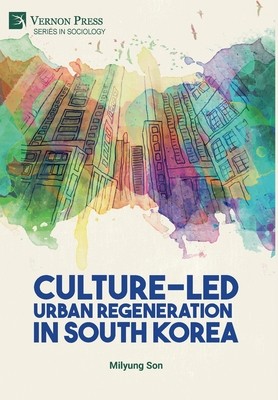
- We will send in 10–14 business days.
- Author: Milyung Son
- Publisher: Vernon Press
- ISBN-10: 1622736788
- ISBN-13: 9781622736782
- Format: 15.2 x 22.9 x 1 cm, hardcover
- Language: English
- SAVE -10% with code: EXTRA
Reviews
Description
There is a continuing academic and policy interest in the potential for culture-based urban regeneration across the world. Such regeneration is intended to attract investment, re-imagine spaces and create employment, business and urban planning opportunities. This book seeks to examine the use of culture and arts in the urban regeneration sphere of South Korea. Specifically, a one-year-long cultural event (Culture City of East Asia) is used as a case study for exploring wider debates around and understandings of the relationships between culture-led urban regeneration initiatives and the impacts on communities in South Korea.
Despite the proliferation of culture-led initiatives aiming to tackle broad social issues, there is a lack of in-depth research into the efficacy of such urban regeneration. Previous researches have asked such questions as: What benefits can cultural elements (e.g. mega-events or signature buildings) bring into a city? What is the role of culture in economic development (e.g. tourism and internal investment)? What is the economic value of cultural goods and services?
This is not to say that such questions should be the only concerns in assessing a culture-led urban regeneration strategy. However, the evaluation process of culture-led regeneration frequently fails to ask questions about the impact on human communities: Are cultural resources being used to spread culture, or just to focus on economic development? Are cultural initiatives like mega-events being used to benefit local citizens? How can residents shape a culture-led regeneration strategy? This book is intent on examining residents' opinions and perspectives about culture-led urban regeneration. It recognizes how culture-led regeneration schemes interact with local communities, focusing on the actual views of local people rather than being coldly theoretical.
EXTRA 10 % discount with code: EXTRA
The promotion ends in 19d.17:17:35
The discount code is valid when purchasing from 10 €. Discounts do not stack.
- Author: Milyung Son
- Publisher: Vernon Press
- ISBN-10: 1622736788
- ISBN-13: 9781622736782
- Format: 15.2 x 22.9 x 1 cm, hardcover
- Language: English English
There is a continuing academic and policy interest in the potential for culture-based urban regeneration across the world. Such regeneration is intended to attract investment, re-imagine spaces and create employment, business and urban planning opportunities. This book seeks to examine the use of culture and arts in the urban regeneration sphere of South Korea. Specifically, a one-year-long cultural event (Culture City of East Asia) is used as a case study for exploring wider debates around and understandings of the relationships between culture-led urban regeneration initiatives and the impacts on communities in South Korea.
Despite the proliferation of culture-led initiatives aiming to tackle broad social issues, there is a lack of in-depth research into the efficacy of such urban regeneration. Previous researches have asked such questions as: What benefits can cultural elements (e.g. mega-events or signature buildings) bring into a city? What is the role of culture in economic development (e.g. tourism and internal investment)? What is the economic value of cultural goods and services?
This is not to say that such questions should be the only concerns in assessing a culture-led urban regeneration strategy. However, the evaluation process of culture-led regeneration frequently fails to ask questions about the impact on human communities: Are cultural resources being used to spread culture, or just to focus on economic development? Are cultural initiatives like mega-events being used to benefit local citizens? How can residents shape a culture-led regeneration strategy? This book is intent on examining residents' opinions and perspectives about culture-led urban regeneration. It recognizes how culture-led regeneration schemes interact with local communities, focusing on the actual views of local people rather than being coldly theoretical.


Reviews